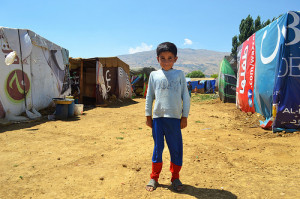Quakers in Britain are urging governments to reject violence and find a peaceful solution to the crisis in Syria by adopting nonviolent tools for conflict resolution.
Helen Drewery, general secretary of Quaker Peace & Social Witness, said today that “Quakers see war as wrong because we value every human being so highly that killing them cannot be right. We need to use the nonviolent tools we have – we need to respect them, learn to use them better and not see them as weak alternatives. As the threat of military intervention is averted, at least for now, it’s important that we all redouble our efforts to find peaceful resolutions to this situation, support humanitarian aid to the region, and encourage dialogue.â€
A public letter published by the American organisation Friends Committee on National Legislation calls on the US government to take 6 nonviolent steps for peace. The steps could be adopted by the UK government and others who continue to cite the need for “robust action†following the alleged use of chemical weapons in the country. British Quakers could respond to the situation by writing to their representatives encouraging nonviolent steps as part of what David Cameron calls “robust actionâ€.
The 6 steps put forward by FCNL are:
- Rejecting military intervention, which would increase violence and increase the risk of more chemical weapons attacks.
- Co-sponsoring a US legislative proposal to prohibit military aid to Syria.
- Supporting continued UN investigations.
- Urging president Obama to convene an emergency summit.
- Pressing the UN Security Council to ask the International Criminal Court to investigate war crimes in Syria
- Increasing and better allocating humanitarian aid to reflect the flow of refugees in the area.
In the letter, which can be read in full on the FCNL website, FCNL executive secretary Diane Randall says: “The solution to the Syrian crises will not be found in escalated violence, but rather in means and mechanisms that de-escalate the violence and create a platform for a negotiated settlement. Working with all stakeholders, to apply new non-military mechanisms to weaken the engaged parties’ capacities and motivations to commit atrocities against civilians is the only way to make that happen. Just as the Taif Agreement of 1989 ushered in an end to the Lebanese civil war by securing buy-in from internal factions and external actors, a negotiated end to the Syrian crisis must be similarly inclusive.
Diane Randall concludes: “As a Quaker organization, we do not believe violence is the solution. Further violence will not achieve the goals that you have articulated in Syria, and we do not see any scenarios where U.S. military intervention will help.â€
On Thursday 29/08/2013 the UK parliament voted by 285 votes to 272 not to support a premature attack on Syria. Speaking on Friday 30/08/2013, recording clerk of Quakers in Britain Paul Parker said: “We acknowledge the difficulty of deciding on an appropriate response to the atrocious situation in Syria at the present time, and have been upholding decision-makers as they struggle to find a right way forward. We are pleased to see this moderate and peaceful outcome, and thank MPs for their care in making this difficult choice.â€
The European Union has had an arms embargo in place on Syria but in 05/2013 this was fundamentally weakened by the UK. Campaign Against Arms Trade has been calling on the UK government to take six steps towards peace:
- Reinstate the arms embargo on all sides in the conflict in Syria.
- Ensure no weaponry supplied to third countries, such as Saudi Arabia, is sent on to any faction within Syria.
- Place pressure on countries giving military support to anti-Assad militias, overtly or covertly, to end such support and supplies.
- Place pressure on Russia and other supplier countries to stop supplying weapons to the Syrian government, and to end any official UK government relationship with Rosoboronexport and other agencies that supplies arms to Assad.
- Give all possible support to a negotiated solution to the conflict.
- Pledge greater resources for humanitarian assistance to refugees and displaced people.
Amnesty International has published an interactive map showing nonviolent activism in Syria.
Quakers in Britain concluded a public statement they issued on Wednesday stating their opposition to violence by saying: “We beg those in power to work with diligence through the United Nations and all diplomatic channels to bring peace nearer. We challenge them to use their resources and imaginations creatively. Please don’t fall into the old trap of thinking that taking any action is bound to be better than doing nothing.
“We will pray for peace in the region, and continue to voice our deep opposition to war.â€
